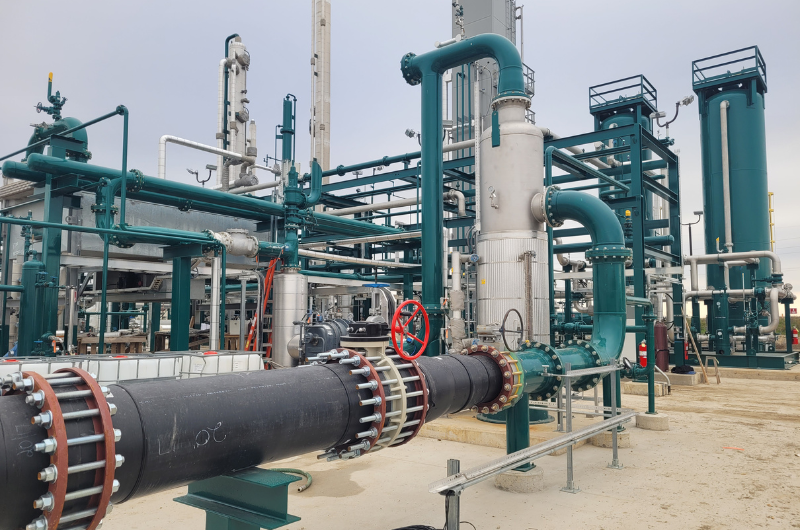We are proud to announce the expansion of our renewable natural gas (RNG) portfolio with the addition of Prairie View RNG, which began commercial in-service on December 20, 2023. This newest RNG plant in Wyatt, Indiana, is designed to capture and upgrade landfill gas from the Prairie View Landfill. The facility is expected to add approximately 0.8 billion cubic feet (Bcf) of RNG capacity annually.
“We are excited for the continued growth of our RNG portfolio and to further address the increased demand for renewable solutions,” said Craig Moore, Chief Commercial Officer of Kinder Morgan RNG. “We look forward to working with more landfills to transform their biogas into renewable energy and to enable a more sustainable future.”
Together with the Twin Bridges and Liberty landfill RNG facilities completed earlier in 2023 in collaboration with one of the largest landfill owners and operators in the United States, these three projects have added approximately 3.9 Bcf to KMI’s total annual RNG capacity.
When used as a transportation fuel, the RNG generated from these plants could displace approximately 28 million gallons of diesel a year, lowering greenhouse gas emissions by about 280,000 tons.
Methane, a large component of landfill biogas, is a greenhouse gas that is more than 28 times as potent as carbon dioxide at trapping heat in the atmosphere according to the Environmental Protection Agency.
1 Kinder Morgan RNG works with landfills to capture and
convert methane from biogas into RNG, renewable electricity or medium-Btu energy. Our vertically-integrated approach enables us to connect with other organizations that want to use renewable energy in their daily activities to reduce their emissions as we continue to expand the supply of RNG.
Learn more about our Liberty RNG plant, our
renewable gas assets and how we can help you experience economic and environmental benefits at your landfill.
To learn how RNG can help reduce your environmental impact and to inquire about our available supply of RNG,
send us a note.
1. https://www.epa.gov/gmi/importance-methane
